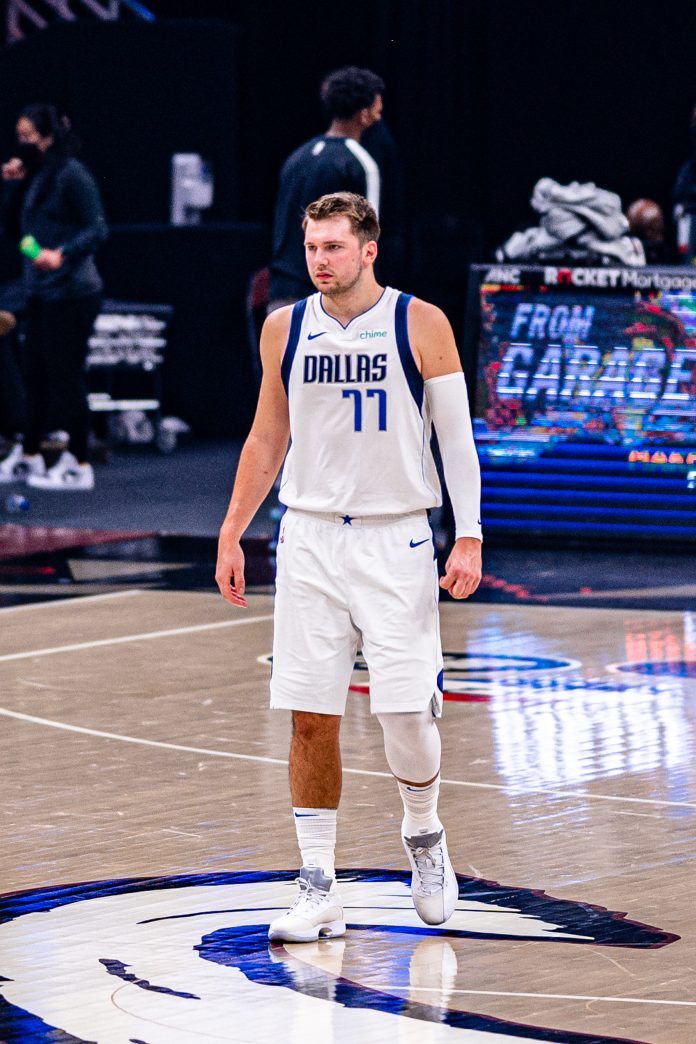The Dallas Mavericks’s decision to trade Luka Dončić rocked the basketball world. Fans of the National Basketball Association (NBA) have since struggled to make sense of the move: Mavericks General Manager (GM) Nico Harrison traded Dončić—a 25-year old superstar, MVP candidate and bona fide post-season winner—for Lakers big man, Anthony Davis—a 31-year old player who has a track record of succumbing to injury and by no means has proven himself capable of leading a team to a championship. The stark incongruity of this deal becomes even more shocking when considered alongside the fact that the Dallas Mavericks only ever contacted the Los Angeles Lakers about the prospect of trading Dončić.; Hhad Nico Harrison engaged multiple teams in trade talks and begun a bidding war, the Mavericks would have surely received a massive package in return for the young superstar. Thus, not only did the Mavs surrender Dončić for a hardly comparable player but did so without shopping for other options. Many have rationalized the absurdity of this trade by accusing Harrison of plain stupidity. However, a deeper look into the forces that led to this blockbuster deal reveals that Harrison proved merely the henchman in one of the most shocking corporate maneuvers in sports history.
The events leading up to this trade began in December of 2023, when the owner of the Las Vegas Sands Corp—Israeli billionaire Dr. Miriam Adelson—along with the President of the corporation—Patrick Dumont—together bought a majority share of the Dallas Mavericks from tech billionaire Mark Cuban. Las Vegas Sands Corp—founded by casino industry titan Sheldon Adelson and headquartered in Las Vegas—proves one of the most powerful casino and resort companies in the world. Cuban explained his choice to sell ownership of the team to Miriam Adelson and Patrick Dumont in a 2024 interview: “you see other teams in all sports . . . talking about casinos, talking about doing real estate development. That’s just not me.” As Cuban recognized, running a sports team had become significantly more about building an entertainment empire than looking after a team. Adelson and Dumont, with their knowledge of the casino industry, hoped to do what Cuban could not: use Dallas basketball as the foundation for a new entertainment and gambling empire in the state of Texas.
Unfortunately, one crucial impediment hindered the realization of their plans: Texas law forbids gambling. Adelson and Dumont thus took steps to undo this inconvenience and hired a team of lobbyists to push the legalization of gambling through the Texas legislature. Unfortunately for the pair of billionaires, the bill that would have allowed their company’s expansion into the Lone Star State failed to even make it to a vote in 2023. Having suffered this frustrating defeat, Adelson and Dumont determined to develop a new strategy in order to achieve their corporate aims, and from the ashes of their previous legislative effort arose the Luka Dončić trade.
Adelson and Dumont realized that if they traded Dončić to the Lakers, they could use the leverage gained from the deal to force the Texas government’s acquiescence. Three key facts flush out the mechanics of this corporate maneuver: firstly, the NBA’s ratings have dipped to dangerously low levels this season; secondly, NBA Commissioner Adam Silver has sought to open an NBA team in Las Vegas; and finally, Dallas proves the NBA’s fifth largest market.
Adelson and Dumont knew that by trading Dončić to the Lakers, they could indebt NBA Commissioner Adam Silver to them: sending the NBA’s biggest rising star to Los Angeles where he could play alongside Lebron James would definitely motivate viewership. Furthermore, Adelson and Dumont foresaw the ensuing rage of Mavericks fans who would feel cheated out of their beloved superstar. The owners thus sought to use the subsequent decline in fan enthusiasm as a possible pretense to relocate the team to Las Vegas; such a move would prove certainly feasible, given the NBA Commissioner’s indebtedness to them. The possibility of relocating would then serve as a titanic bargaining chip to use against the Texas government, for if lawmakers desired to keep the Mavericks and their millions of dollars in Dallas, they would have to capitulate to Adelson and Dumont’s pressure and legalize gambling in the state.
Thus, on Feb. 1, Adelson and Dumont forced Nico Harris to trade Dončić away for the historically low price of one aging big man. In fact, the shockingly low price that the Lakers paid for Dončić proves not a negative side effect of Adelson and Dumont’s scheme, but a design feature: the greater the outrage, the greater the justification to move to Las Vegas, thus placing even pressure on Texas politicians. Unsurprisingly, in an episode that revealed the effectiveness of Adelson and Dumont’s power play, Texas Governor Gregg Abbott chose to make a statement on the topic of gambling within a week of the trade wherein he declared his support for legalizing sports betting in Texas. The governor’s comments serve as the first step towards what both the Las Vegas Sands Corps and Adam Silver have long coveted: a gambling and sports betting industry in America’s second-largest state.
Luka Dončić’s trade to the Lakers proves a story not of managerial incompetence, but of meticulously executed corporate intrigue. After all, professional basketball is just a business, and, therefore, not immune from the cutthroat drama onlookers typically expect more of Google or Amazon than the NBA. As a result of the trade, Luka Dončić—who had just purchased a house in Dallas and soon would have had the opportunity to sign a super-max contract worth hundreds of millions of dollars—now has to move to a new city and has lost out on the chance for all that money. The billionaires reign as the true kings of the NBA, and Luka Dončić, the fans of the Dallas Mavericks and the entire realm of basketball fandom have just witnessed the most potent and remarkable reminder of these owners’ power that NBA history has ever seen.


